|
|
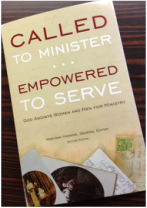 I was so honored to contribute to the anthology, "Called to Minister, Empowered to Serve" along with other female clergy and scholars whom I admire greatly. This book offers a biblical, historical, theological and ethical rationale for women in ministry in the voice of, from the perspective of and in the Spirit of women. Below you can read an excerpt from my chapter on Women in the Old Testament. "Called to Minister, Empowered to Serve" is now available in Kindle Edition at amazon.com In the pages of the Hebrew Bible we find beautiful imagery and noble typography, contours of women who have gone before us and left their mark. In the material known to us today as the Old Testament, we read of women who were prophets, military leaders, priests, wise women and wisdom personified. However, to study the lives of these women is no easy task. The reality is, the stories, as we have them are not handed down to us from the voices of the women themselves, rather what we have is an image rich narrative developed from a covenantal history, drawn upon the map of patriarchy. The narratives then, are primarily concerned with the public lives of men who are or are in some way related to the patriarchs and are connected to the emergence of the monarchy. It must also be stated that the narratives are also recorded, copied, edited and compiled by men who live many centuries after those women and men whose stories they are trying to convey. We must understand at the outset that the material we have existed first as oral tradition and communities were formed around story, many of these stories endured across the generations to be recorded during the compilation of the codices which are now considered canonical by persons of Jewish and Christian faith. To do these women any justice we must unearth information about their world, status, society and gender roles in ancient Israel. We are helped then to also consider archaeology and anthropological studies in concert with the Scriptures to gain a better picture of life in ancient Israel for women. In the Hebrew Bible, we find the stories of a people and a society who traverse the land of the Ancient Near East for more than 1,200 years (Murphy, Cullen: 1993). Of the 1,426 persons named within the narrative of the Old Testament, 111 of these named persons are women. While this seems like a small number, the witness of the lives of these women is powerful and their presence in this male dominated text reveals a prominence held by certain women. Though a casual reading of the Old Testament might leave us with the impression that women were confined to the domain of the home and their sole contribution was procreation, a closer look demonstrates another dynamic altogether. Mayer Gruber points out that women served as judges (Judges 4.4-5), officiated funerals as clergy (Jer. 9.16-19; 2 Chron. 35.25), slaughtered animals in priestly and domestic rites, served as prophetesses and sages (2 Samuel 14; 20.16-22), both nursed children and read Scripture in public settings (Gruber, Mayer: 1999). Gruber has also rightly demonstrated that within the Hebrew Scriptures we have accounts of women as priestesses (Exodus 38.8; 1 Sam. 2.22), poets (Exodus 15.21; Judges 5.1-31; Proverbs 31.1-9), musicians (Ps. 68.26), “queens, midwives; wet-nurses; babysitters; business persons; scribes; cooks; bakers; producers of cosmetics (I Sam. 8.13 ) as well as innkeepers and prostitutes (Josh.2).” While the scope of this study will not allow us to consider the 111 named women of the Hebrew Bible, we will take a representative group and trace their lives, their communal impact and their covenantal significance. We do this in effort to illuminate the reality that though the narrative of Hebrew Bible is primarily concerned with the lives of the patriarchs, there exists also a counter narrative that demonstrates the activity of God present and powerful in the lives of many women which reverberates through the nation of Israel for the good of the world. The group we will consider here is the women of the genealogy of Jesus offered in Matthew’s Gospel as each of these women emerge from the story of ancient Israel and the tradition of their contributions endure into the New Testament Canon and beyond. The narratives of these women, Tamar, Rahab, Ruth, and Bathsheba offer us traditions of women who were significant in the life of ancient Israel if also representatives of life in a given place and time who simultaneously rise from the narrative to demonstrate women as agents of God’s covenantal and universal work. Want to Read More...get your copy today!
0 Comments
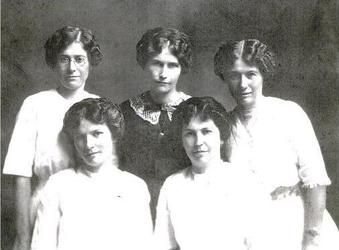 Center Rev. Ada Cooper, Hermitage Church of God, Hermitage, TN In response to Patheos.com “Why I am a…” in 200 words or less: I am Church of God, Anderson, IN because I was raised up in love. I have been reared in the tradition that also loved and fostered my parents and grandparents. I was born into a local church where a founding pastor of the 1930’s had been a woman, raised up under a sense of welcome and inclusion, taught the distinctions of our Wesleyan-Holiness heritage. I was reared in a church where I was invited to sing a special at six years old, where I watched women kneel and wash the feet of other women, spread the feast for a pie social and gather for Tuesday morning prayer. As an adult I pursued ordination in this tradition and have attained graduate degrees at our School of Theology where I now also teach and I am committed to the fierce, radical passion for justice and evangelism that animated the earliest days of our Movement. I am the Spirit daughter of Lena Schoffner, pioneer Church of God preacher who demanded the rope separating races be torn down, I am an heir to the Movement who would welcome Every One to the table of love. 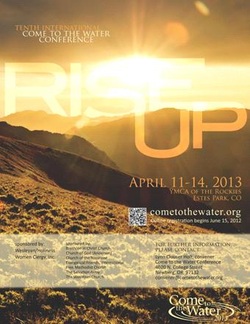 It's not too late! If you are a clergy woman or a woman preparing for ministry, join us for Rise Up, the tenth annual Wesleyan Holiness Clergy Woman Conference. This was the single most encouraging event of my formation as a woman called to ministry and academy. Here you will worship with other women on a similar path, you will be challenged and equipped for ministerial life. The conference is conceived around workshops that are both academic and practical along with up close and personal time for networking with other women in your tradition and field. Break out sessions include: Narrative Preaching, Balance in Ministry, Responding to the LBGT community, Interfaith Dialogue, Prostitution and Sex Trafficking, Exploring Publishing, and a new Social Justice track added this year. If you need to be refreshed, inspired, encouraged, empowered, if you need to laugh and cry and worship with other women in your vocation; this is the place for you!! Join us in Estes Park next week!! It's Here!! The latest edition of Called to Minister, Empowered to Serve is hot of the printing press and will be available at The Wesleyan Holiness Women Clergy Conference, April 11-14, at warnerpress.org, anderson.edu/sot and Amazon.com. Edited by Dr. Mary Ann Hawkins this book is a collaboration of love by women clergy and scholars in the the Church of God Movement, please find the chapter penned by yours truly below!!
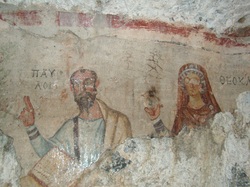 I was in junior high school the first time it happened, all arms and legs, moods swinging in the rafters, pimples and crazy, curly hair. Awkward and overly dramatic as I was, I still found myself beautiful, found life worth the effort. I owe this sense of self, of course, to two loving parents and Seventeen magazine. In the early days, all I knew was I could do anything, there were no limitations according to my gender, self or person—hard work, determination and sheer will could carry me down whatever path I chose, to say nothing of the power of God. The first time this notion was challenged, I was twelve and attempting to play touch football with our pastor and some guys in my church. In Tennessee all of us grow up tossing the ball around, rolling in the grass, laughing in the warm autumn sun. So the game called by my pastor was no different than those games I had played with my cousins and other friends so many times before; only-- it was. This time both teams were made up of men and boys with the exception of me. This wouldn’t have been so bad except the pastor/quarterback wouldn’t throw the ball to me. In fact, he threw the ball over my head more than a few times though I was open with little or no coverage. Now I’m the first to admit I have always been more suited for an afternoon in the mall than to play running back, but, I was a really fast runner, had a God given talent, and everyone knew it—why wouldn’t he give me a chance? Why was he treating me differently; why was he playing the game as if I wasn’t there? Why were my gifts and graces being discounted? Over the years, I have become aware that these emotions live just under the surface for me and for many other women called to and equipped for ministry. Through years of study and I believe, under guidance of the Spirit, I have come to understand these emotions were also palpable and formational in the life and ministry of the apostle Paul, who was after all, not one of the original 12. As a woefully misunderstood Biblical and historical figure, second only to Jesus in this, the apostle Paul will struggle both with the lack of human validation and at the same time, his certainty of divine sending. Over the course of the next few weeks, this blog will engage with Pauline and Deutero- Pauline texts to determine how the story of the apostle’s own life and call impacted his teaching on God’s call and an egalitarian-gifts based approach therein. I will search out and demonstrate how the ostracized and criticized apostle spent his life fighting for what he confesses in Galatians, “There is no longer any Jew or Greek, slave or free, male or female, for you are all one in Christ Jesus.” I hope you will join me! I welcome your insights, comments and questions. |
Subscribe Today for Free GiftBLOG
Archives
June 2019
Categories
All
|
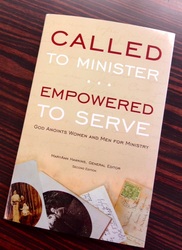
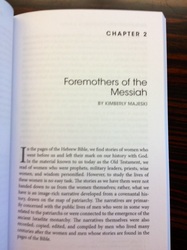

 RSS Feed
RSS Feed